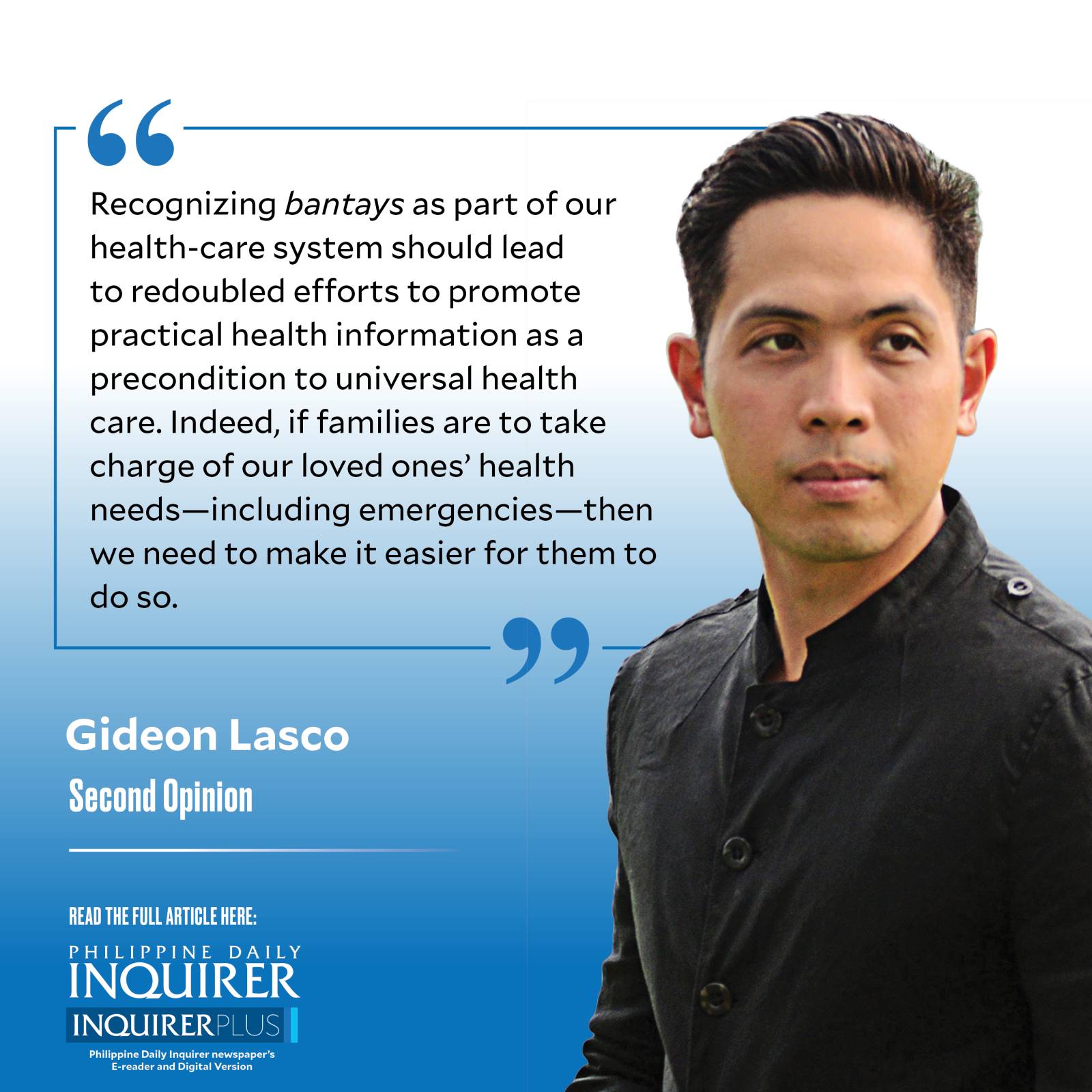‘Bantay failure’
Generations ago, one of the most arresting images of the Philippine General Hospital (PGH) is that of a “bantay” (i.e., companion or “watcher”) pumping an “ambu-bag” (a bag valve mask) to an intubated, critically ill patient in the wards. What this means is that, since the patients cannot breathe on their own, they require assistance in the work of breathing; this assistance usually comes from a machine (i.e., a mechanical ventilator) but since patients cannot afford or get hold of a machine, the assistance has to be done manually by another person.
It goes without saying that the person “ambu-bagging” cannot stop for hours on end, else, the patient will die. “Even the rhythm of our patient’s breathing relies on the bantay’s hands,” as Allan Larona, two years my senior, recounts. Indeed, rest—even for just for a few seconds—was not an option for the poor bantays. But sometimes they get distracted or tired, or even fall asleep, leading to the inevitable consequence. This is what hospital staff called “bantay failure.”
Article continues after this advertisementIn hindsight, it is easy to see that such a “failure” is but a symptom of the failure of the health-care system, and of society at large, to provide the most basic support to the most vulnerable, leading to a state where the amount of money literally determines the length of life (charity patients couldn’t afford to rent a mechanical ventilator which costs P1,500 a day during our time). It is also a demonstration of how people are held responsible for these failures; they end up getting blamed—and blaming themselves—for what went wrong. Jean Alcover-Banal, a cardiology fellow while I was a PGH intern, recalls how bantay failure as a common cause of death back then. “But was it right that they were given such a huge responsibility?” she asked.
Thankfully, such a piteous sight is no longer common today, mirroring some significant progress in the hospital and in our health-care system. My classmate Kris Tan, now a pulmonology consultant at PGH, tells me that “infrastructure is better, no fees for charity patients, no need to hoard or prepare needs prior to each rotation,” alluding to our practice back then of having to scour the wards for syringes and catheters.
Even so, the bantay still carries much responsibility, and remain essential to the provision of care. Austin Lacson, a clinical clerk from University of the Philippines College of Medicine Class 2025, offered some reflections on X in response to last week’s piece on the “bantay system”:
Article continues after this advertisement“It really is eye-opening how the bantay also functions as a bridge for the patients and their anxious family. They’d often be the ones to video call their families, show the patients, their surgical scars and the number of tubes going in and out of their loved one’s body … Being able to explain to the bantay provides them the words to explain to their family looking at these tubes from the small screen on the cellphone.
“Another important factor here is how the bantay provides an important familiar face to the patient. My [patient] was so anxious post-op waking up in the [post-anesthesia care unit] that the moment he was brought back to the wards, seeing his daughter made him tear up.”
Lacson’s insights are a reminder that just as the patient’s role is relatable to all of us, being a bantay is just as familiar, and one way or another, we have fulfilled this for our loved ones—or vice versa. It is also worth adding that beyond the negative reason behind the bantay system of the lack of human resources, there is also a positive one, given that taking care of our loved ones is a very cultural way of enacting kinship, showing affection. As Pampanga Rep. Anna York Bondoc, also a PGH graduate, tells me: “Their care and time, that’s their contribution to the family, just as everyone else is working to pay the hospital bills.”
Recognizing bantays as part of our health-care system should lead to redoubled efforts to promote practical health information as a precondition to universal health care. Indeed, if families are to take charge of our loved ones’ health needs—including emergencies—then we need to make it easier for them to do so. And if the bantay are health-care providers in their own right—an untapped, underappreciated therapeutic ally—then they should be active participants in any health plan, like the patients themselves.
This brings me to a larger point that I’ve been raising in my recent writing: It’s about time for us to look at health care as a matter of teamwork, decentering doctors and including hospital staff, students, and most especially family members and loved ones who actually do much of the work. This has been the call of many voices all along, as I’ve gleaned from the lectures of Allan Dionisio; the writings of Michael Tan and Arthur Kleinman (See “In praise of caregiving,” 10/6/23); the advocacies of the late Mercedes Fabros, among others. Thus I cannot agree more with Agnes Cubillas-Torres, a geriatric medicine specialist, who said: “I always say that the bantays are 90 percent of the success of patient improvement.”
And I’m sure many of us can say what she tells her patients’ bantays to the bantays in our lives: “Buhay ang pasyente dahil sa’yo, salamat nandyan ka.”
—————-
glasco@inquirer.com.ph

















